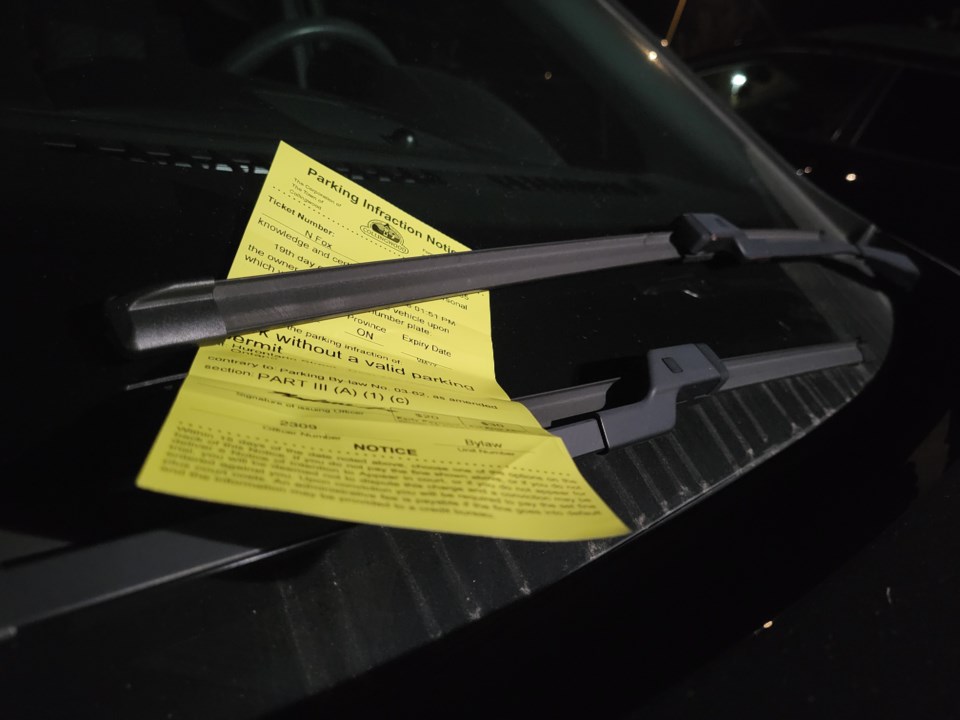Collingwood will be adopting an administrative monetary penalty system for bylaw fines, which will eventually replace the current system that uses a process governed by the provincial offences act.
During their Oct. 3 regular council meeting, councillors voted unanimously in favour of following a recommendation passed through committee of the whole on Sept. 25 to switch to the new system, with roll out in the third quarter of 2024 starting with bylaws governing property standards, animal control and noise bylaws.
“It’s a more personalized process with more simplified procedures without sacrificing justice,” said the town’s manager of bylaw enforcement Adam Harrod at the committee of the whole meeting on Sept. 25.
The estimated cost for the launch of the system is between $7,500 to $12,500.
The main difference between the administrative monetary penalty system and the provincial offences act system, says the staff report, is that the current system is contested through the provincial court, whereas an administrative monetary penalty appeal would be handled in-house.
An administrative monetary penalty approach also offers municipalities the chance to add unpaid tickets to tax bills, and to mail a ticket when it isn't possible, or safe, to hand the ticket to the person in contravention of the town's bylaws.
Court time for dealing with provincial offence notices is limited and there's a significant backlog, states the report.
A system that uses administrative monetary penalties would be supported through town bylaws, and would be contested through an in-house process instead of at the courts. Officers would issue a penalty notice, which can be paid, or contested to a screening officer. The next step would be an appeal to a hearings officer, which would be an independent third party.
Existing bylaw staff will be in the screening officer role and the report recommended the town's provincial offence prosecutor could be the hearings officer. The whole appeal process should take about an hour.
The Town of the Blue Mountains uses an administrative monetary penalty system for some of its bylaw enforcement, as does Newmarket, Vaughan, Markham, Hamilton, Oakville, Kitchener and Waterloo.
During the Sept. 25 committee meeting, Coun. Chris Potts raised concerns about the workload for bylaw staff.
“I’m all about supporting efficiency. Where I have concern is putting the workload back onto staff,” said Potts. “We consistently hear when it comes to bylaw concerns in the community that there are staff shortages.”
Harrod clarified at that time that the third-party conducting hearings would not be town staff, nor would they be connected to the province.
“I think it’s a great move for our community, to take these more straightforward matters out of the provincial offences court,” said Mayor Yvonne Hamlin.
Hamlin raised the issue of short-term accommodations, and whether short-term accommodation bylaw matters would be under the new system rather than the provincial offences court.
Harrod said a short-term accommodation bylaw would likely go through the new system.
“I think, for residents, this is very attractive in terms of the timelines. I’m not settled yet with the financial part of it. I would have thought the financial aspects of this would have been offset by less staff time,” said Jeffery.
During council’s Oct. 3 meeting, Jeffery put forward an amendment to the motion calling on staff to provide a report back to council six months into the rollout of the new system, outlining the net financials and staff time taken up by the new program, which was unanimously passed.
Harrod noted that one of the challenges of the new system would be the municipality’s ability to pursue charges when the person charged doesn’t live in Collingwood.
“This is no different from the current provincial offences act system. They try to send out notices to collect unpaid fines. Eventually, they go to a collections agency,” he said.
The motion supporting the implementation of the new system was passed by a unanimous vote at the committee level on Sept. 25. The motion was ratified at the regular council meeting on Oct. 3. Coun. Chris Potts was absent from the council meeting.
With files from Erika Engel.
